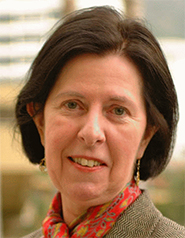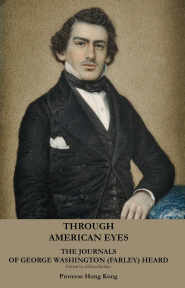19th Century China (and Japan) through American Eyes
|
Speaker: |
Dr Gillian Bickley |
|
Time: |
6:30 - 8:00 pm |
|
Venue: |
Special Collections, 1/F, Main Library, The University of Hong Kong |
|
Language: |
English |
About the Speaker
|
|
Gillian Bickley, Editor of this work, has spent many years working with primary materials from 19th century history. She is the author of The Stewarts of Bourtreebush (2003) and The Golden Needle: The Biography of Frederick Stewart (1836-1889) (1997), and editor of The Complete Court Cases of Magistrate Frederick Stewart (2008), A Magistrate's Court in Nineteenth Century Hong Kong: Court in Time (2005; 2nd edition, 2009), The Development of Education in Hong Kong, 1841-1897 (2002) and Hong Kong Invaded! A ’97 Nightmare (2001). She is also a well-published and prize-winning poet, translated into many languages. With her husband, Verner Bickley, she is the founder of two annual international Literary Prizes, the Proverse Prize for book-length work (awarded since 2009) and the Proverse Poetry Prize for single poems (awarded since 2016). |
About the Book
|
|
EYE-WITNESS ACCOUNTS OF EARLY WESTERN DIPLOMACY, Long ago secrets, lost emotions and persistent sadness at human conflict are finally revealed in this first publication of journals written by a young American visiting the Far East for the first time. Travelling out in 1859 to join his uncle’s then successful trading house, Augustine Heard & Co., George was hired on shipboard by fellow-passenger John E. Ward, the American Minister tasked with the ratification of the American-Chinese treaty. As an attaché to the American Legation, George witnessed the June 1859 Battle of the Peiho, and in July 1860 – now promoted as Secretary of Legation – he saw the western Allies’ preparations for the return battle that took place in August 1860. At least one of his letters home was borrowed to be copied by the American Minister and sent to the US President as an official report. These were early days in the intercourse between the United States and the Far East; the first Treaty with Japan (which George also visited and writes about here) had been agreed only a short time earlier. Some of the Chinese people whom George talked with in villages visited on the way to Beijing had never heard of his country. A cultured, charming and conscientious person, with a sense of humour, an early-developed cross-cultural perspective, and highly readable writing style, George W. Heard died unmarried in his late thirties and was buried far from home. This book finally brings home his memorial. |



